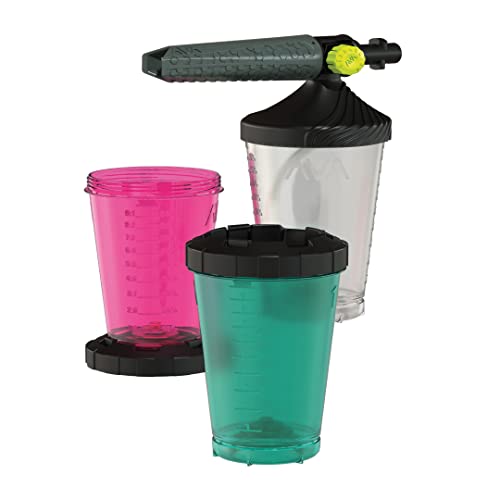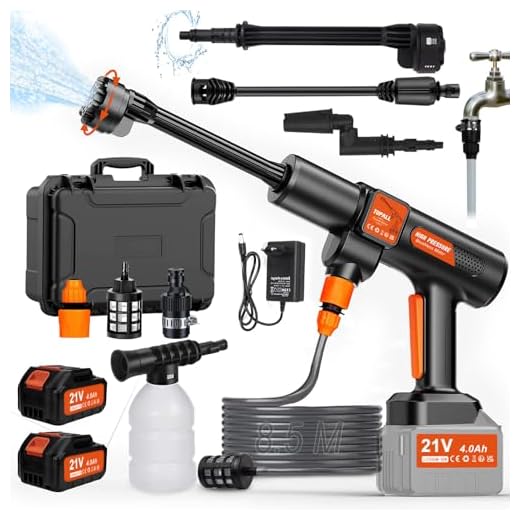

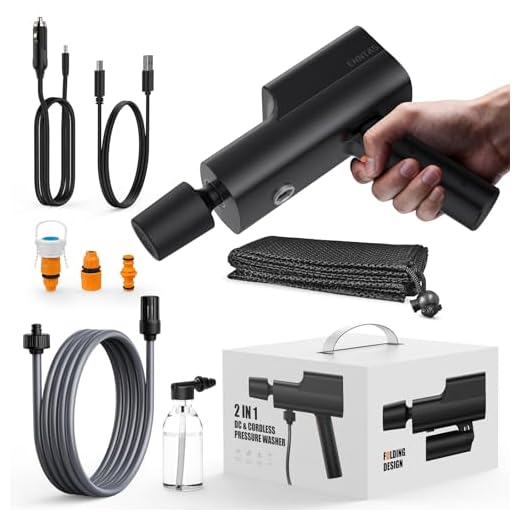

The answer is straightforward: Yes, most models require a connection to a power source for operation. There’s a vast array of electric options available on the market, allowing for efficient cleaning tasks without the hassle of refuelling or complex setups. These units are designed to deliver consistent performance as long as they are connected to an electrical outlet.
However, there are also alternatives powered by petrol, which operate independently of a wall socket. These options can be particularly advantageous for outdoor tasks in remote areas. It’s essential to consider your specific needs: if you primarily work close to an outlet, an electric variant may suffice, but for bigger spaces or projects, a petrol-powered unit could offer flexibility.
Maintenance is also influenced by the power type. Electric cleaners generally require less upkeep compared to their petrol counterparts, which need regular checks on fuel and oil levels. Therefore, aligning the choice of equipment with your intended usage is crucial to ensure optimal results and efficiency.
Do Pressure Cleaners Require Electrical Connection?
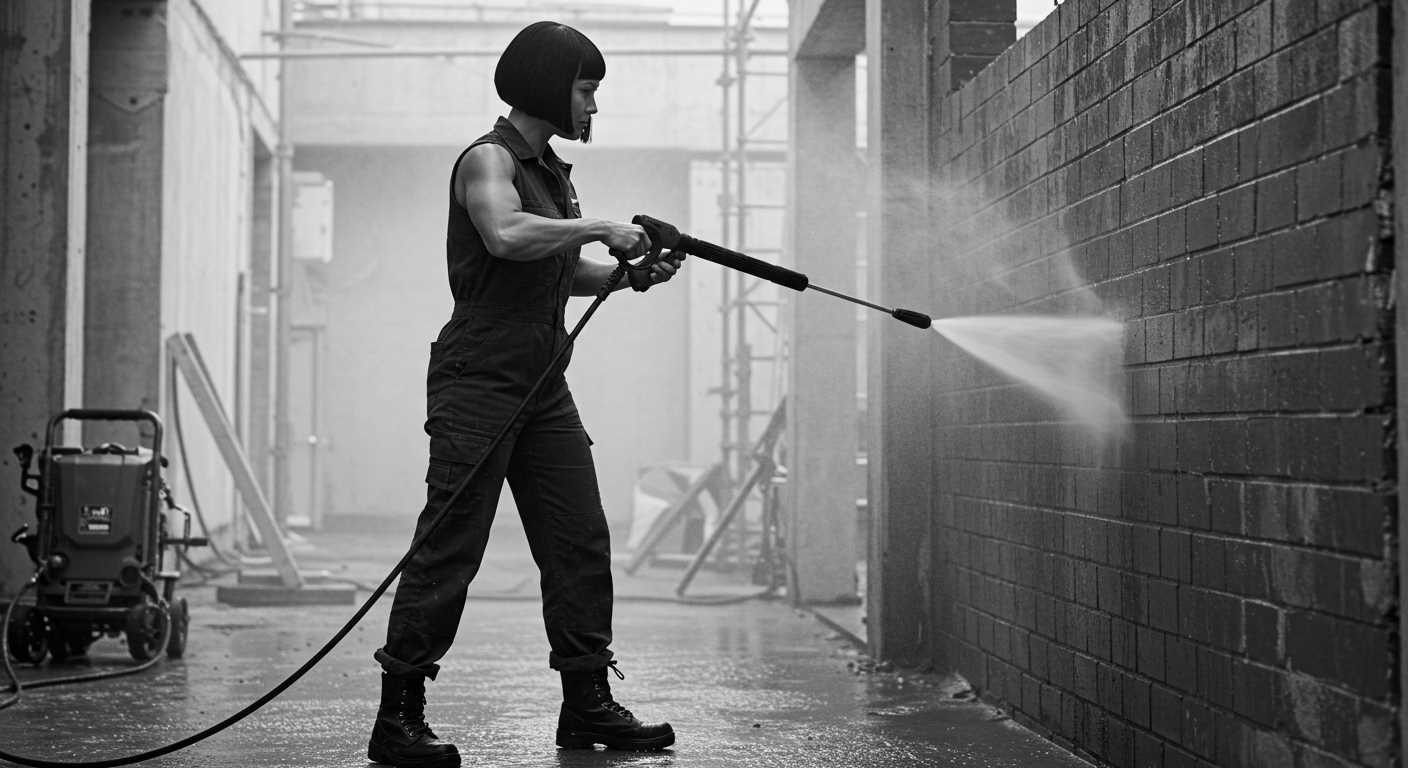
Yes, most electric models require a direct electrical connection to operate. These units are powered by mains electricity, typically utilising a standard outlet. Ensure that the circuit can handle the load; check the voltage rating specified in the user manual.
If you prefer mobility and flexibility, consider battery-operated options. However, keep in mind that their performance may vary based on battery capacity and charge level. They are suitable for light-duty tasks but may not match the cleaning power of electric versions.
Always verify the length of the power cord or extension requirements to guarantee safe operation without overloading any extension leads. Overloading can lead to overheating and increase the risk of electrical hazards. Regularly inspect cords for wear and tear to maintain safety standards.
In summary, while electricity is essential for most electric variants to function, battery alternatives do exist with trade-offs in power and duration. Choose the type that aligns with your cleaning needs and preferences.
Understanding Electric vs Gas Pressure Washers
Electric units thrive on convenience, perfect for residential tasks where cord length can accommodate your area. They generally offer lower noise levels and cleaner operation, making them ideal for close-quarter cleaning jobs. However, they lack the raw power and mobility that gas-powered models provide. For larger projects, especially outdoors, gas-operated machines prove more efficient due to their higher PSI ratings and portability.
Consider the maintenance aspect: electric types require minimal upkeep compared to gas counterparts, which demand regular engine checks and fuel management. When choosing between them, evaluate your specific requirements. If you primarily do light, frequent cleaning, the electric variant often suffices. For heavy-duty applications or infrequent but intense use, investing in gas equipment will yield better results over time.
Evaluate the scale of your cleaning task before committing to either type. If your outdoor space is extensive or if you’re tackling tough stains and grime, gas units are likely to meet your needs effectively. Conversely, for everyday cleaning of patio furniture or garden tools, an electric version serves well without the hassle of fuel and maintenance.
Power Requirements for Electric Pressure Washers
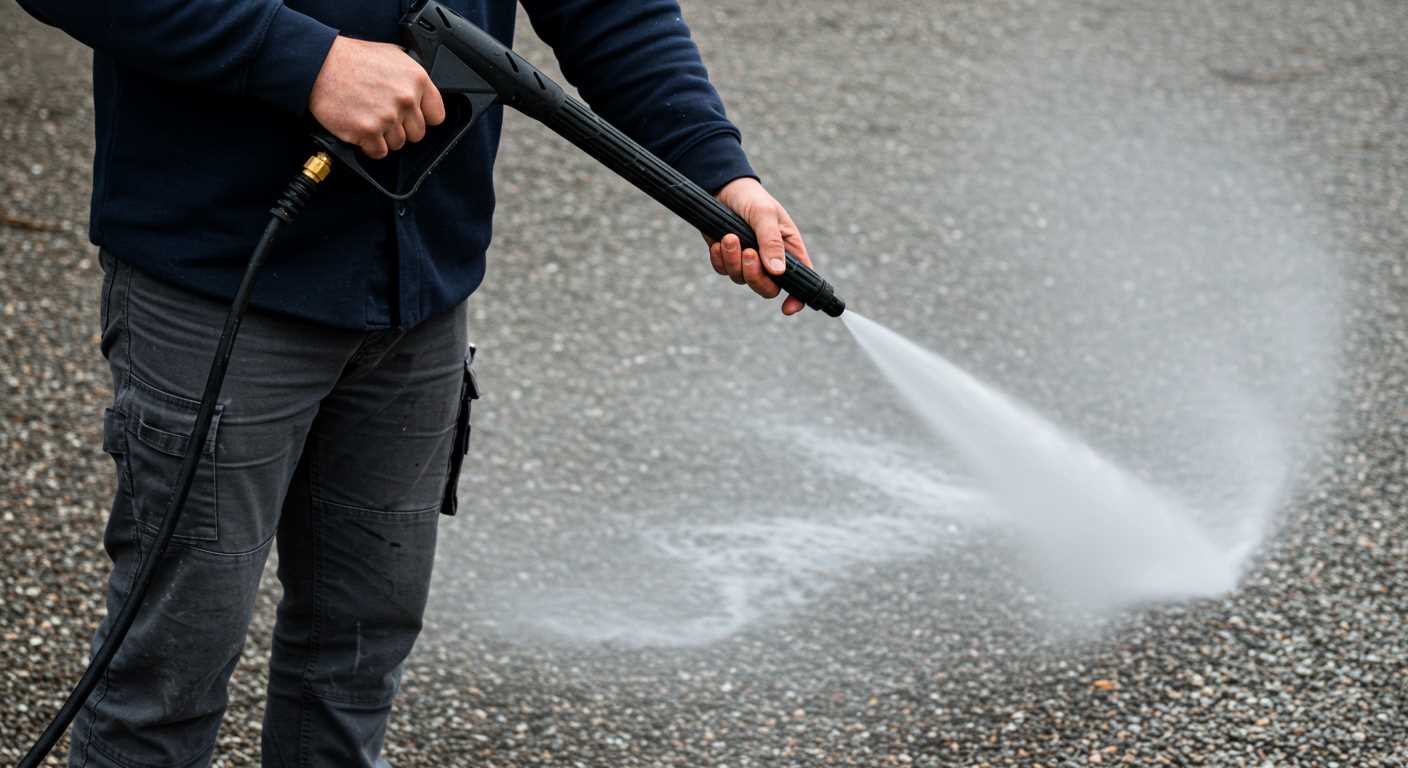
Electric models typically operate on standard household outlets, commonly rated at 120 volts in North America and 230 volts in Europe. Most units will function on a 15-amp circuit. To ensure optimal performance, avoid using extension cords longer than 50 feet, as this can result in a significant drop in voltage.
Amperage and Wattage Considerations
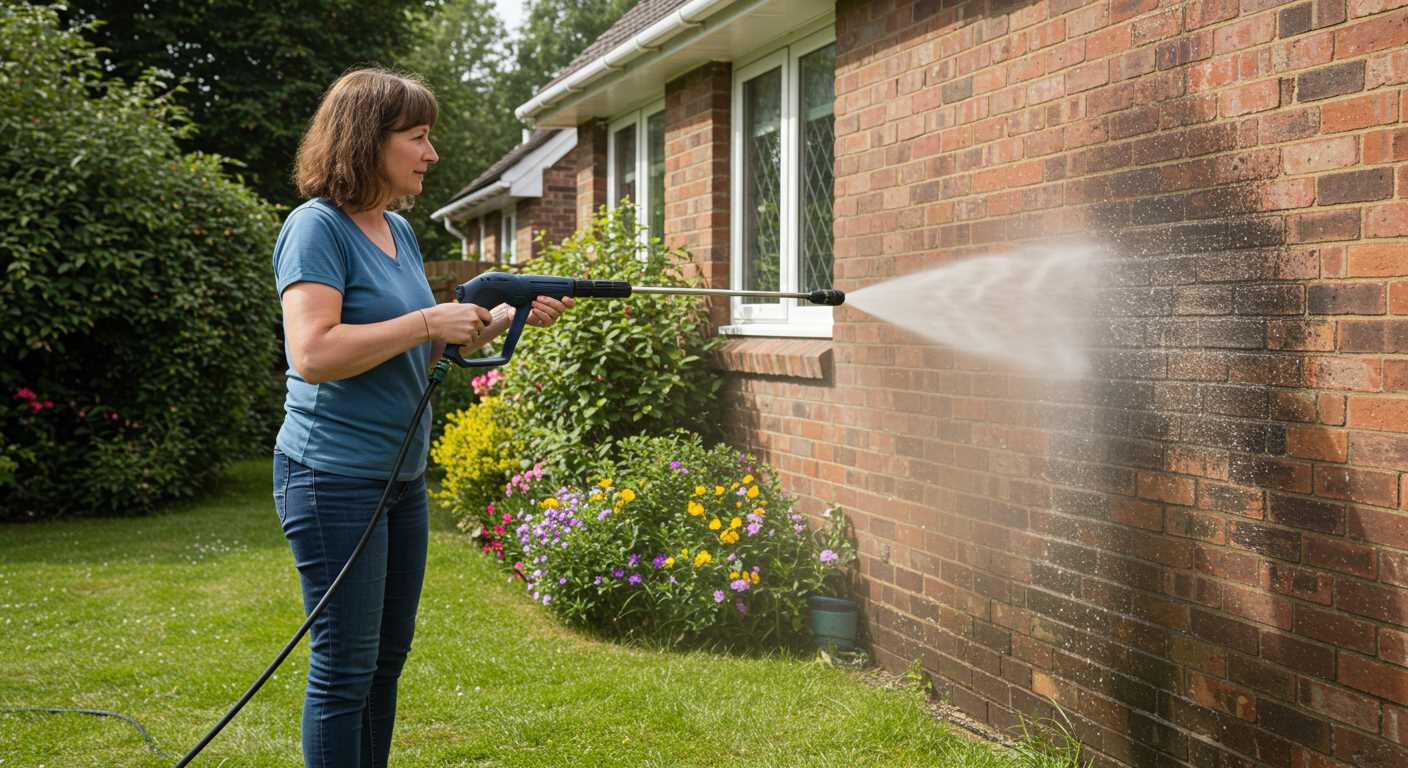
Amperage plays a crucial role in the functionality of these devices. Higher amperage ratings, such as those found in commercial-grade units, allow for increased flow rates and pressure. For instance, a unit rated at 13 amps often produces between 1,800 and 2,300 PSI, which is suitable for most cleaning tasks. Knowing the wattage is also essential; multiplying volts by amps gives you the wattage. A standard electric model averaging 1,800 watts will generally provide sufficient power for domestic use.
Voltage and Compatibility
It’s vital to match the voltage of the appliance with the available outlet. Using a device with a different voltage could lead to equipment failure or, worse, safety hazards. If operating in outdoor areas, ensure the outlet is GFCI protected to mitigate any electrical risks. Always consult the manufacturer’s specifications regarding power requirements for the best results.
Battery-Powered Equipment: Do They Require a Socket?
Battery-operated devices in the cleaning segment provide the freedom of mobility without reliance on a direct electrical source. These models operate independently, utilising rechargeable batteries, which means they don’t have to be connected to an outlet during use. This characteristic is particularly beneficial for outdoor tasks where access to power may be limited, allowing users to tackle various projects without the constraints of cords.
Performance and Runtime
The performance of battery-run equipment depends significantly on the battery’s capacity. Typically, models with higher amp-hours (Ah) offer extended operating times but may also require longer charging periods. I recommend looking for units that feature lithium-ion batteries, as they tend to deliver consistent power throughout the runtime and possess quicker charging capabilities.
Convenience and Portability
Portability is a key advantage of battery-driven models. Without a cord, manoeuvring around obstacles becomes simpler, enhancing user experience during cleaning activities. However, it is important to remember that excessive demand on these devices may drain the battery quicker. Balancing pressure levels with the area being cleaned can optimise both effectiveness and runtime.
Using Extension Cords with Electric Pressure Washers
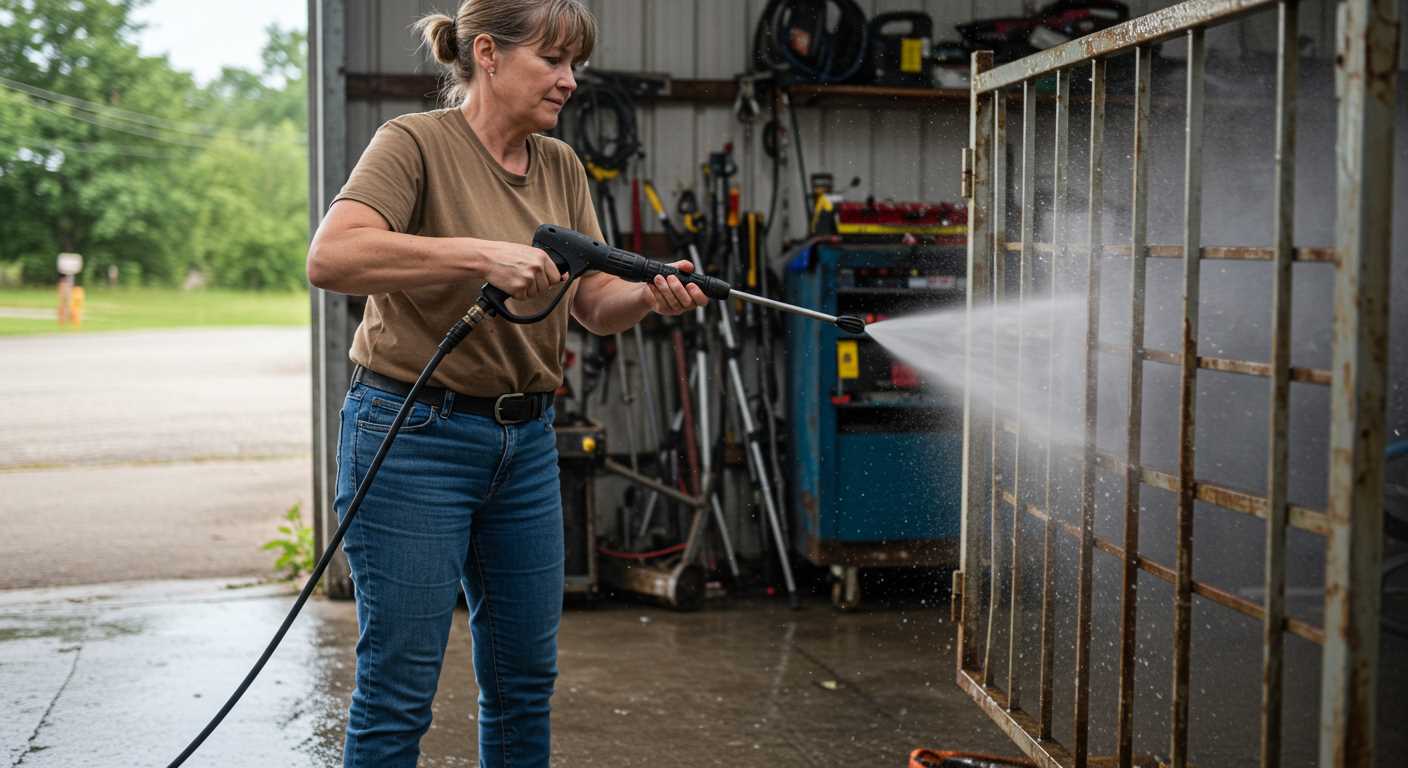
Using an extension cord with electric cleaning devices can streamline your tasks, but caution is essential. I recommend selecting a heavy-duty extension cord, ideally rated for at least 15 amps, to prevent overheating. Look for cords with a minimum gauge of 12 AWG for longer distances, as this will effectively manage power loss over extended lengths.
Avoid using cords longer than 100 feet, as excessive length can diminish performance and increase the risk of tripping breakers. For safety, ensure the cord is in good condition, with no fraying or exposed wires, as this could lead to electrical hazards.
Select a cord suitable for outdoor use, designed to withstand moisture and extreme weather. Connecting the cord to a ground fault circuit interrupter (GFCI) adds an extra layer of protection against electrical shock. Always unplug the unit before connecting or disconnecting the cord to prevent accidents.
While extension cords can enhance mobility, ideally, use the unit as close to the outlet as possible. This approach ensures optimal performance and safety, reducing the chance of fire hazards and equipment malfunction.
Common Issues with Plugged-In Units
Frequent problems arise with electric models that require a socket for their operation. Here are some critical issues I’ve encountered:
1. Power Supply Failures
Inadequate voltage supply can lead to malfunctioning. If the voltage is lower than required, the engine may not start or operate at subpar performance levels.
2. Tripping Circuit Breakers
Using an extension cord that is too long or insufficiently rated can overload the circuit, causing breakers to trip. It’s crucial to match the cord gauge to the power specifications of the device.
- Ensure that the cord is rated for outdoor use.
- Opt for a heavy-duty extension cord for longer distances.
- Avoid daisy-chaining multiple cords together.
3. Overheating Issues
Continuous use without proper breaks can lead to overheating. If the device feels excessively warm, it’s advisable to let it cool down to avoid permanent damage.
4. Electrical Short Circuits
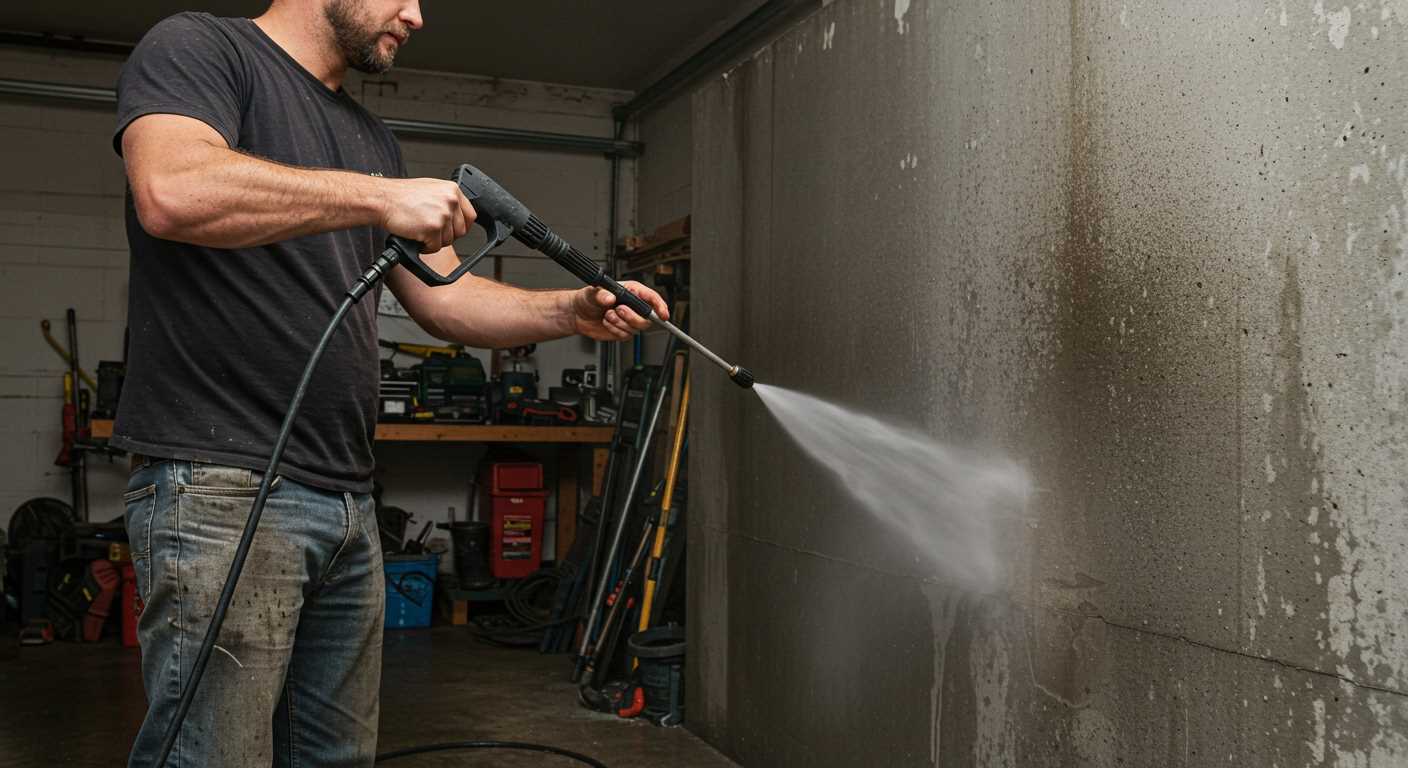
Moisture exposure or damaged cables can cause shorts, leading to safety hazards and equipment failure. Always inspect cables for wear and keep units dry during operation.
5. Poor Connectivity
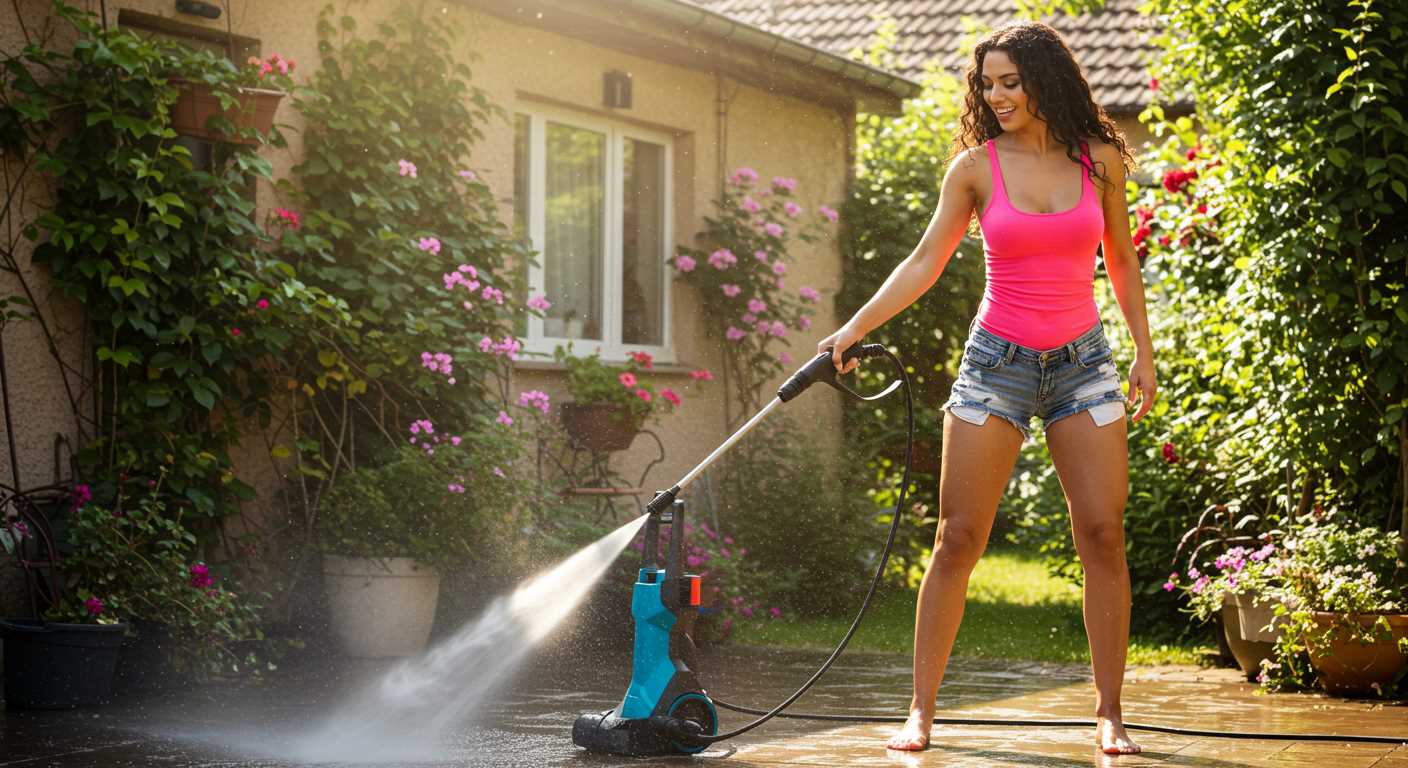
Corrosion on connectors or socket points could hinder electrical flow. Regularly check and clean connection points to promote efficient performance.
Addressing these common issues promptly can extend the lifespan of electric models and improve their overall functionality. A proactive approach will save not only time but also repair costs in the long run.
Choosing the Right Power Source for Your Pressure Washer
For optimal performance, select a power source that matches your equipment requirements. For electric models, ensure you have a reliable outdoor outlet that meets the specified voltage. Gas-powered varieties operate independently and require fuel instead.
Electric Pressure Washers
For electric units, assess the wattage recommendations. Many require at least 120 volts, and using a lower voltage can lead to inadequate performance and potential damage. Always check the manufacturer’s guidelines to avoid any complications.
Gas-Powered Models
Gas-operated machines operate without a direct connection to an outlet. Calculate the fuel type and ensure you have access to gasoline or propane, depending on your model. Regular maintenance is also a must to keep these units running effectively.
| Power Source | Pros | Cons |
|---|---|---|
| Electric | Quieter, easier to maintain, no emissions | Limited mobility, relies on outlet availability |
| Gas | Portable, high power output | Noisy, requires fuel, emissions |
Evaluate your cleaning needs and environment before selecting your source. Making the right choice ensures you maximise the efficiency and longevity of your cleaning equipment.
FAQ:
Do pressure washers need to be plugged in to work?
Yes, most electric pressure washers require a power source, so they need to be plugged in to function. They typically come with a power cord that connects to a standard electrical outlet. However, there are gas-powered pressure washers that do not need to be plugged in, as they run on gasoline. If you are considering a pressure washer for outdoor cleaning tasks, make sure to choose the right type based on your power requirements.
Can I use a pressure washer without electricity?
Yes, you can use a pressure washer without electricity if you choose a gas-powered model. Gas pressure washers are self-sufficient and do not require electrical power, making them ideal for outdoor use in areas where electricity is not readily available. However, they do require fuel, such as gasoline, to operate. For those looking for portability and the ability to reach remote areas, gas pressure washers are a suitable option.
How long does the power cord of an electric pressure washer typically last?
The lifespan of the power cord on an electric pressure washer can vary based on the quality of the cord and how well it is maintained. Generally, a well-cared-for power cord can last for several years. It is important to regularly check for any signs of wear and tear, and to store the pressure washer in a dry place when not in use. If you notice any damage to the cord, it is advisable to replace it to ensure safety during operation.
Are there cordless pressure washers available?
Yes, there are cordless pressure washers on the market, typically powered by rechargeable batteries. These models offer convenience and portability, allowing you to use them without being tethered to an electrical outlet. However, battery-powered pressure washers may have limitations in terms of power and runtime compared to their electric or gas counterparts. If you opt for a cordless option, consider the battery life and pressure output to ensure it meets your cleaning needs.
Can I use an extension cord with my electric pressure washer?
Using an extension cord with an electric pressure washer is generally not recommended, especially for long distances or heavy-duty models. Doing so can lead to a drop in voltage, causing the pressure washer to perform poorly or potentially damaging the unit. If you must use an extension cord, choose one that is heavy-duty and rated for outdoor use, and ensure it’s short enough to minimise voltage loss. Always check the manufacturer’s guidelines to be certain about compatibility with extension cords.





